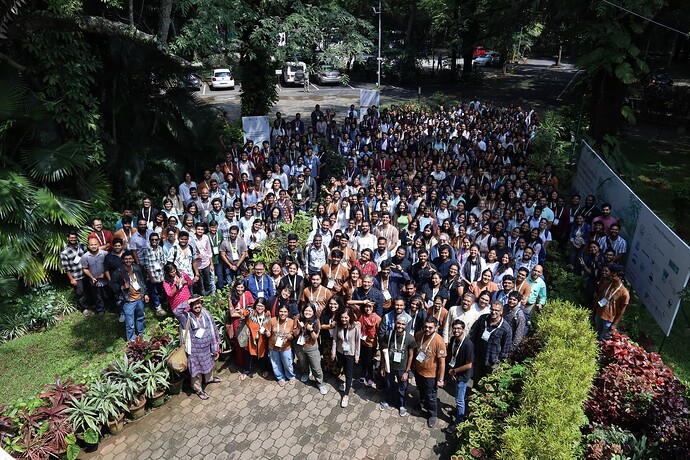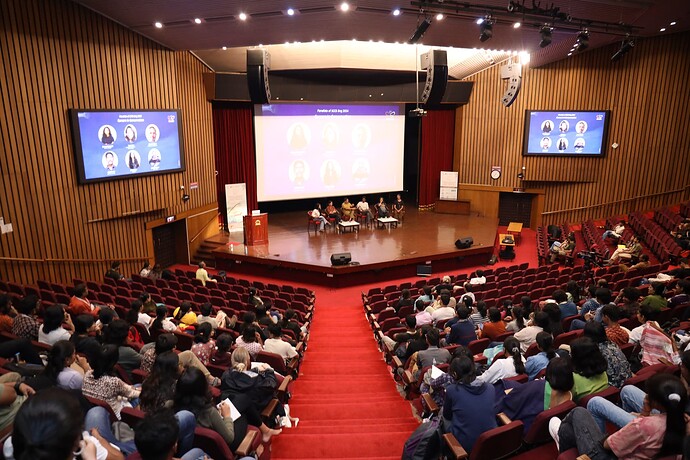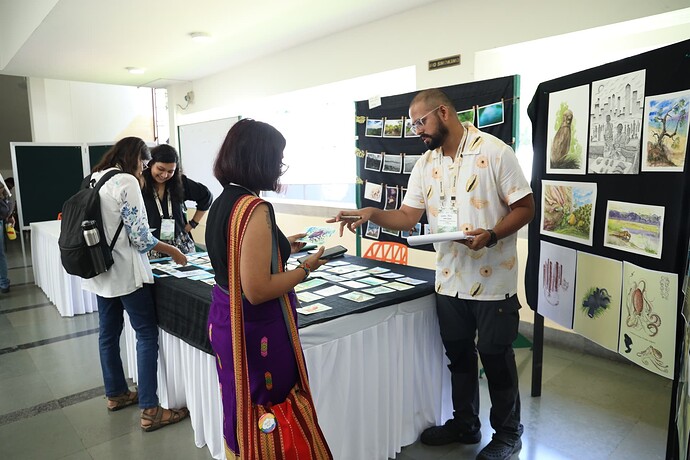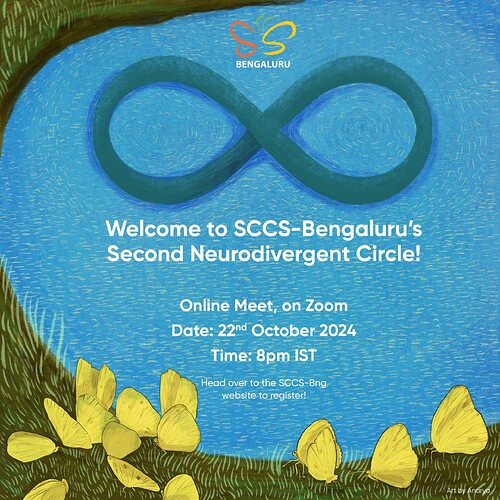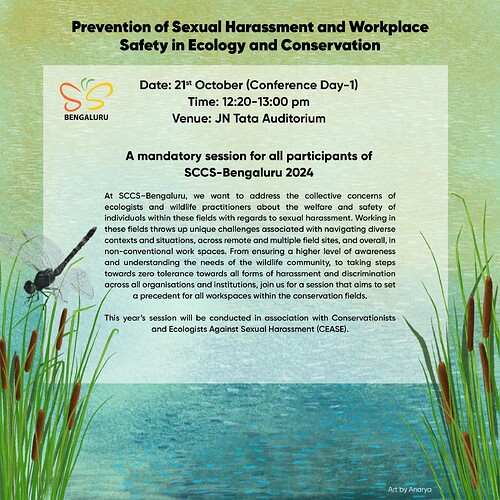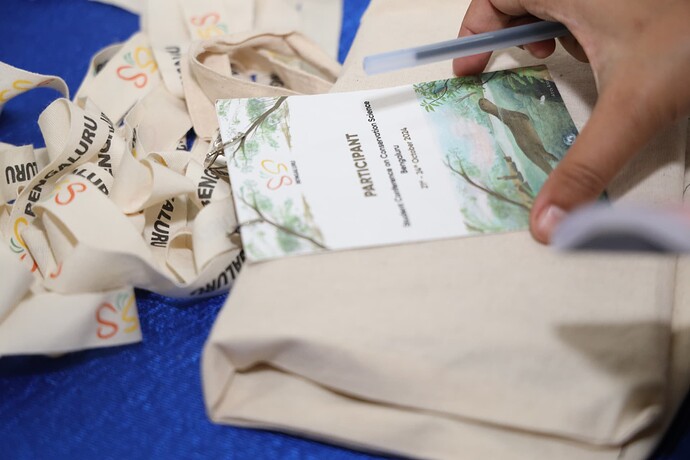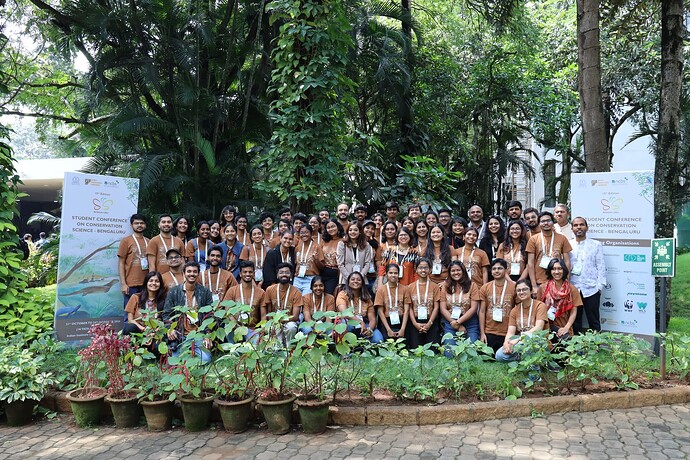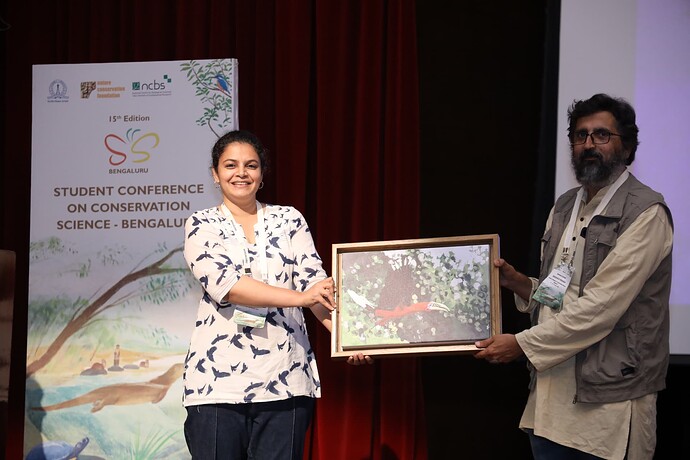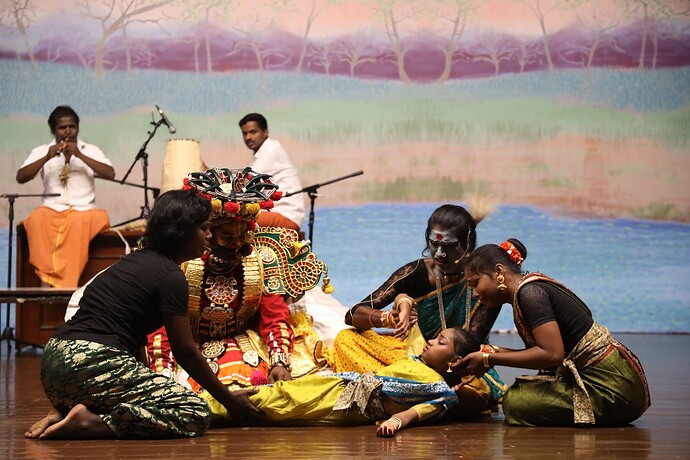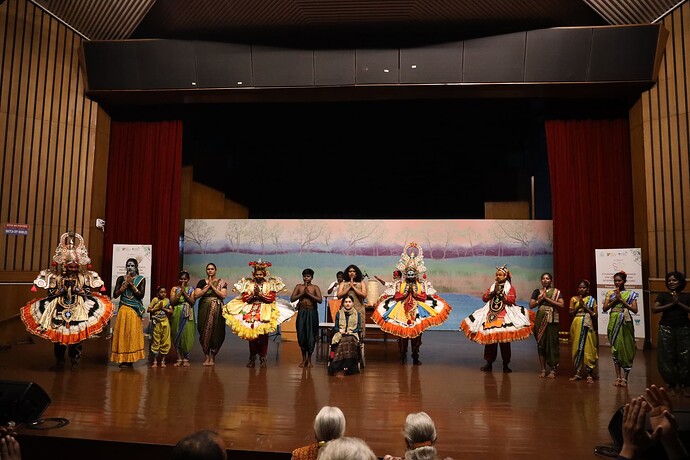The 15th edition of the Student Conference on Conservation Science (SCCS) – Bengaluru concluded on a high note in October 2024, bringing together conservation enthusiasts, researchers, students, and practitioners from across Asia and Africa. Hosted at the Indian Institute of Science (IISc), Bengaluru, the four-day conference stood as a vibrant platform for exchanging ideas, building networks, and strengthening interdisciplinary approaches to biodiversity conservation. With a strong emphasis on inclusion, sustainability, and knowledge-sharing, SCCS Bengaluru 2024 marked a significant step in empowering the next generation of conservationists while celebrating 15 years of scientific inquiry and collaboration.
SCCS Bengaluru has grown into one of the most influential conservation conferences for early-career professionals. This year, 400 registered participants and around 600 attendees, including experts, volunteers, and guests, came together from different regions and backgrounds. From undergraduate students to doctoral researchers and working professionals, everyone found a space to connect, learn, and contribute. The platform is particularly valuable for connecting conservation practitioners from Africa, South Asia, and Southeast Asia, enabling them to address global challenges while embracing regional expertise and solutions.
The scale and enthusiasm of the event were reflected in the numbers. Over 600 participants attended, with 5 plenary talks, 15 oral presentations, 66 poster presentations, and 42 workshops (10 long and 32 short) covering themes like ecological restoration, technology, and ethics in conservation. Networking sessions such as Birds of a Feather brought together conservationists to discuss themes like marine conservation, human-wildlife interactions, and ecological restoration. The Who’s Who in Conservation session included 25 organizations, and 81 abstracts were shortlisted from 175 submissions.
The plenary sessions were a highlight, featuring thought-provoking discussions by distinguished speakers such as Stephen Alter, author and naturalist; Jagdish Krishnaswamy, hydro-ecologist; Pranay Lal, bio-chemist and author; Madeline Green, interdisciplinary researcher; and Jennifer Powers, ecology professor at the University of Minnesota. These sessions covered topics ranging from human-wildlife interactions and water ecosystems to interdisciplinary research methods and conservation narratives.
Another major highlight was the Careers in Conservation panel, moderated by Neha Sinha. The panel brought together five experts—Sartaj Ghuman, artist and ecologist; Shreya Dasgupta, field-based conservation professional; N. Jeykumaran, Deputy Director at Melghat Tiger Reserve; Manish Chandi, conservation scientist; and Puja Mitra, grassroots biodiversity practitioner. Panelists explored career transitions, funding avenues, mental health, and the need for interdisciplinary approaches. The session offered practical guidance and inspiration to early-career conservationists seeking to make an impact.
Beyond the sessions, participants connected with nature through early morning bird, tree, and evening loris walks across the IISc campus. Networking sessions like Birds of a Feather provided a space to exchange ideas, while Who’s Who in Conservation allowed attendees to explore career paths and collaborative opportunities. For the first time, SCCS Bengaluru introduced the Artist’s Corner, celebrating how art and creativity amplify conservation messages. The featured artists included Sambita Modak, P. I. Megha Vinod, Gaurav Patil, and Anshruta B. A., whose works engaged participants in new ways.
SCCS Bengaluru 2024 was also a model for inclusivity. Sessions on POSH (Prevention of Sexual Harassment) ensured that safety was prioritized, while the QUEER Circle and Neurodivergent Circle provided supportive spaces for LGBTQIA+ individuals and neurodivergent conservationists, respectively. These initiatives emphasized that conservation is not just about ecosystems—it’s about the people who protect them.
Sustainability was woven throughout the conference. Participants used plantable ID cards, organic cotton lanyards, and eco-friendly volunteer T-shirts, while waste management protocols ensured that no disposable packaging was used. Digital certificates replaced printed versions, further minimizing the event’s carbon footprint. The conference proved that large gatherings can be both impactful and environmentally responsible.
The conference also honored key contributors. A tribute to Shashank Srinivasan, whose family funded over 40 bursaries, highlighted the importance of supporting young researchers. Raman Kumar, the designer of the SCCS logo, was felicitated, and a cultural performance by Katradi Trust brought indigenous art forms to the forefront while spotlighting wetland conservation during the 15th-year celebration.
SCCS Bengaluru gave a tribute to Shashank Srinivasan, a cartographer, technologist, and conservationist
Dr Samira Agnihotri felicitating Dr Raman Kumar for his pivotal role in designing the SCCS logo, a symbol now embraced by all sister conferences worldwide.
15th SCCS Bengaluru featured a performance by the indigenous artists of the Katradi Trust, Tamil Nadu. The performance incorporated the traditional art forms of Kattaikkuttu, Oyilattam, and Oppari, highlighting the cultural heritage of Tamil Nadu and addressing the theme of wetland conservation.
Titled Shhh… Listen!, SCCS commissioned the play and took place on the first day of the conference.
Student excellence was celebrated through awards. Three top presentations in both oral and poster categories were recognized with book bundles, vouchers, and signed artwork. Two special mentions in each category highlighted exceptional work, encouraging participants to continue their scientific contributions.
Financial stewardship remained a cornerstone of the conference. Managed by the Nature Conservation Foundation, the event maintained transparency with ₹74.96 lakhs raised and ₹68.65 lakhs spent. Bursaries extended to 36 student presenters ensured that access and participation were supported, reinforcing the community-driven nature of the conference.
As SCCS celebrates its 15th year, the conference continues to stand as a beacon of interdisciplinary collaboration, inclusivity, and sustainable action. With its commitment to empowering young scientists and fostering global partnerships, SCCS Bengaluru 2024 set the stage for the next chapter in conservation—one where creativity, empathy, and shared responsibility shape the future of biodiversity protection.
SCCS Bengaluru 2024 was more than a conference—it was a movement, a celebration, and a call to action for the conservationists of tomorrow.

